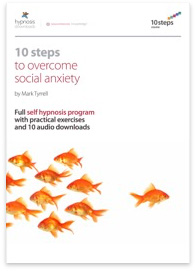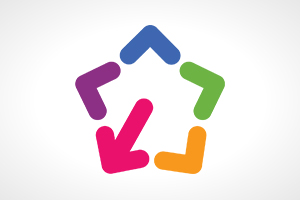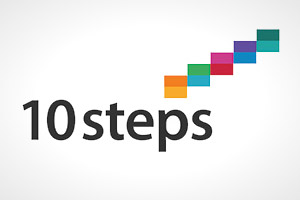Instantly learn how to use the 'I'm OK you're OK' model to improve your relationships
Hypnotically transform your interactions with others

Do you sometimes notice that you get a surprisingly negative reaction from other people to what you 'just normally' say or do? Do certain relationships and interactions seem to be much more difficult to 'get right' than they should, as if there was some kind of imbalance you can't quite put your finger on?
Whether or not you've ever heard of Transactional Analysis (TA), this fascinating psychological model rather interestingly and accurately describes how most human interactions seem to be based on a very particular trio of 'power' relations.
In a (rather tiny) nutshell, TA posits that there are three 'modes' that the self can be in and operate from: 'child', 'parent', and 'adult'. These modes are not to be confused with actual age. Even small children can manifest 'adult' or 'parent'. Who hasn't known a child of whom people say "that's an old head on such young shoulders"? Similarly, we all know of supposedly 'grown up' people who behave like toddlers in a tantrum.
I'm OK You're OK - the ultimate interaction
The three modes have typical ways (or 'scripts') of interacting with each other. All of these, except one, focus on the imbalance of any interaction.
They are:
I'm not OK You're OK - 'child' to 'parent'
I'm OK You're not OK - 'parent' to 'child'
I'm OK You're OK - 'adult' to 'adult'
Every human's first experience is of the natural 'child-parent' power dynamic. This is clearly not an equal relationship. One side has all the power, the other none. How they handle this tricky situation has a huge influence on how the child develops and how it constructs its own inner sense of 'child'-ness or 'parent'-ness. But the third state ('adult') is not a later arrival. It comes into being right alongside the other two.
The difference between parent and adult in Transactional Analysis
It helps to understand the difference between 'parent' and 'adult' modes. The 'parent' is in a position of power. It has knowledge and skills. It has control. It 'takes charge'. In contrast, the 'adult' is in a position of equality. It recognizes, in a sense, that all of us are in the same boat, nobody better than anybody else. The 'adult' doesn't try to run things, nor insist that others must run them. It is co-operative.
How 'adult' mode can get hijacked
What you may have noticed, in yourself or others, is that 'parent' and 'child' modes sometimes (or often) seem to ambush the 'adult' and take over in a highly inappropriate (and often upsetting) way. Think of the people (perhaps you?) who, in certain circumstances, suddenly feel that they have to be in charge and give everybody orders. Or who, conversely, suddenly act as if they can't possibly take any responsibility for anything.
Transactional Analysis explains this as 'automatic script' operations. Our experiences in life have led us to develop certain automatic responses in particular situations - especially those which powerfully remind us, even if we don't consciously notice it, of earlier times when we found the best way to deal with things was by 'jumping' into 'child' or 'parent' mode.
Automatic scripts and getting to I'm OK You're OK
If you are in 'child' mode, your 'operating script' is "I'm not OK, you're OK". That is, the OKness (the power) is on the other side, and you are relating to the other person 'as if' they are in 'parent' mode. Of course, the other person may or may not actually be in 'parent' mode, but this is irrelevant to you - you treat them as if they are. You want them to sort things.
Conversely, if you are in 'parent' mode, your script is "I'm OK, you're not OK". That is, you claim all the OKness (the power) for yourself, and act as if the other person has none, treating them as if they are in 'child' mode. This gives you the feeling that you have a right, or even a duty, to take charge or give orders or advice.
Now clearly there are times when it is appropriate to require other people to sort things out, and when it is appropriate to take charge and give advice. So it is not a matter of saying that either 'child' mode or 'parent' mode is always wrong. But life and relationships would undoubtedly be easier if one could prevent one's 'adult' mode from getting hijacked at the wrong time by an automatic script!
And you can prevent this.
Hypnosis makes it easy to switch to I'm OK You're OK
I'm OK You're OK is an audio hypnosis session developed by psychologists which uses powerful hypnotic techniques to allow you to become your own personal 'script writer'. As you listen regularly to the carefully crafted transformative suggestions in this session, you will get better and better at going into deep trance and making significant positive changes in your life.
You will very quickly begin to notice that quite perceptible changes have taken place, such as
- you feel much more integrated and centered in yourself
- you value yourself and other people and naturally respect your own and others' boundaries
- your interactions with other people start to go much better
- your relationships improve in surprising ways
- you become aware of consciously choosing how you will respond
- you enjoy life more
Download I'm OK You're OK and get your life on an even keel.
I'm OK You're OK is part of our 10 Steps to Overcome Social Anxiety Course
If just the thought of small talk makes you nervous, and social situations make you feel ill, then read on to find out how you can become socially confident and relaxed...
Or you can purchase I'm OK You're OK below:
Listen to the introduction of I'm OK You're OK
Why you can relax about buying from Uncommon Knowledge...
 Mark Tyrrell Creative Director
Mark Tyrrell Creative Director
 Roger Elliott Managing Director
Roger Elliott Managing Director
 Joseph Kao Script Writer
Joseph Kao Script Writer
 Rebekah Hall Script Editor
Rebekah Hall Script Editor
Every hypnosis session is worked on by 3 professional hypnotherapists and a therapy psychology graduate

I'm OK You're OK has been purchased by 823 customers.
I'm OK You're OK
Narrator: Roger Elliott
Length: 25:41
Buy these together I'm OK You're OKLove Your Imperfect Partner and save $6.95
(These products are specially selected to maximize your results from your hypnosis.)
Most popular sessions in Interpersonal Skills
Why we're different to other hypnosis providers:
We're experienced and dedicated therapist trainers
Uncommon Knowledge was formed in 1995, and since then we've trained over 24,000 people at face-to-face events. We've served millions of self hypnosis audio sessions and treated more than 5,000 patients in 1:1 therapy. Our uncommon approach to hypnosis is unique in the field.

More than a million customers
With more than 1 million customers since 2003, we are proud to serve people from all over the globe. With instant access to all of our products, there's no limit to how we can help you.









